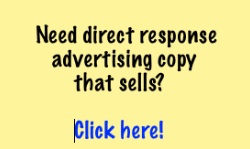Two or three years ago, I bought a hot, new online marketing
product. It was going to make me a big pile of money and put
me on easy street.
Yeehaw. Happy days are here again!
So what happened? Did I get wealthy … retire to a hammock
in Maui … and live the sweet life from that day forward?
Well, not exactly. I would have, of course, but then I got
busy … barely glanced at the product … and never went
through it. But I knew I’d get to it eventually.
Then, a few months later, I bought another hot, new online
marketing product. It too was going to make me a big pile of
money and put me on easy street.
Yeehaw. Maui here I come.
But my glee quickly turned to embarrassment as I realized,
it was the exact same product I had purchased a few months
before.
So now I owned it twice. And what’s more embarrassing, I
never looked at it the second time I bought it, either.
I still haven’t. (And frankly, I don’t even remember what
the product was!)
It’s the story of my life. I’ve long been in hot pursuit of
money-making bling — that magic bullet that will let me
make millions, working just a few hours a day while lying on
the beach.
It’s a condition called “Bright Shiny Object Syndrome.” I’m
tooling along, writing copy for clients, making a good
living, improving my skills … and wham, I spot something
bright and shiny for sale in my inbox.
And I discover that a few bucks are all that stands between
me and the kind of riches that would have turned King Midas
green with envy.
So I eagerly buy it, but like a child with a new toy, I
quickly lose interest and jump to the next bright, shiny
object … and then the next one … and the next one.
I’ve become a collector of this stuff — never, ever using
it — like a guy who buys a multi-million dollar piece of
art and then stashes it in his basement.
Email king Ben Settle has neatly diagnosed my ailment, which
is surprisingly common. As Ben puts it, “A lot of them are
literally addicts — enslaved to the dopamine drip they get
when they buy something new.”
Buying stuff actually makes me — and you — feel good by
stimulating the production of the “happy” chemical dopamine
in our brains.
According to Psychology Today, the same thing happens every
time you check your email … open up Facebook … or read a
text message. And it’s why so many of us behave like addicts
with all that stuff.
So what’s a guy (or gal) to do? Especially when the offer is
closing in two hours … it will never be offered at a price
this low again … and there are so many juicy bonuses that
you can’t bear to pass up.
Unfortunately, as far as I know, there’s no bright shiny
object for solving this particular problem.
However, you’ll find that just knowing what is happening to
you … and labeling it a “dopamine drip” (or perhaps more
appropriately, a “dopamine attack”) makes a big difference
— and can help cool your ardor.
Secondly, somewhere close by keep a list of every
money-making, business-building, marketing and copywriting
product, course or book you’ve purchased (and don’t forget
all the bonuses). Even better, stack them all up on a nearby
bookshelf (print them out if you have to), so you can see
just how absurd your collection has become.
(I did this recently with some of my client-attraction and
copywriting resources. And I quickly realized that I have
enough books, courses, articles and videos on hand to keep
me busy for a couple of hours a day for at least the next
year or two. And that’s just reading and watching —
implementing will take ever more time.)
Third, begin a strict policy taught by internet marketer
Jimmy Brown: Never, ever buy a product — no matter how good
the deal and no matter how great the bonuses — unless you
know for a fact that you can and will use it within the next
two weeks.
And when the temptation to buy something new strikes, make a
firm decision to begin perusing and implementing the last
thing you bought instead.
Will you miss out on a few good deals? Sure, but so what?
These deals always come around again (no matter what the
countdown timer says). In the meantime, you’ve already got
plenty of stuff to work on!
Do this and you’ll begin to reduce the urge to clutter your
hard drive or book shelves with thousands of dollars worth
of money making courses, copywriting manuals and marketing
stuff that you rarely implement and sometimes never even
look at.

